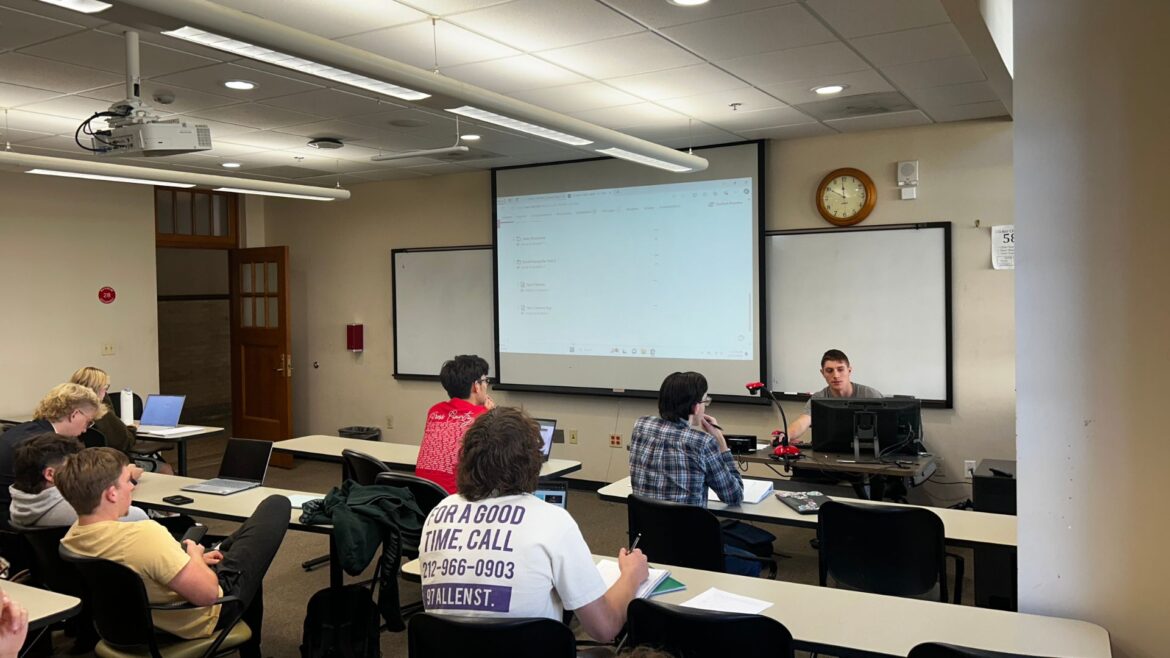By: Will Raburn
FAYETTEVILLE, Ark. (UATV) – The University of Arkansas’ Supplemental Instruction (SI) program has become a valuable resource for students tackling historically challenging courses such as chemistry, biology, and engineering. SI leaders, who are students that have previously excelled in these courses, lead weekly study sessions that help their peers grasp difficult concepts, ask questions, and develop learning strategies.
For SI leaders, the role is more than just teaching. They often balance their demanding science-based majors with the responsibilities of leading up to seven sessions a week. Despite the challenges, SI leaders find the experience rewarding.
SI Mentor, Max Crofton, said, “Being an SI instructor has taught me so much about how to manage my time with work and school and having fun. Learning these skills now will really help me in the long run.”
SI leaders go beyond traditional teaching, incorporating fun activities, games, and quizzes to engage students and make learning enjoyable. This approach is particularly beneficial for freshmen who are new to the rigor of science majors. For many, having an instructor who is also a student helps create a personal connection that goes beyond the classroom.
“Having a teacher who is also a student in the same field as me helps me connect with them on a personal level. It makes me feel like I have a teacher who is also a friend,” said SI student Carter Schmidt.
SI leaders also serve as role models, demonstrating that it is possible to balance academics, teaching, and social life. By effectively managing their time, they provide a strong example for their students on how to handle multiple commitments in college.
“Seeing these teachers balance all these aspects of life really sets a great example for us as young college students. No matter how busy you are, you still have to work to get to where you want to be,” Schmidt added.
For SI leaders, the benefits extend beyond the classroom. After a semester of teaching, they can apply to become mentors, which comes with a raise in pay. Additionally, the experience is a valuable resume booster for those applying to medical or graduate schools.
While balancing their academic and social lives with teaching responsibilities can be difficult, the experience is worth it for many SI instructors.
“Balancing school while also teaching and having a social life gets difficult sometimes, but it’s worth it getting to teach these guys every week,” said Crofton.
Through their dedication and commitment, SI leaders play a crucial role in helping students succeed in some of the university’s most challenging courses.


